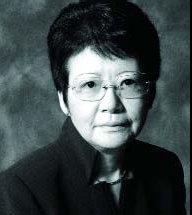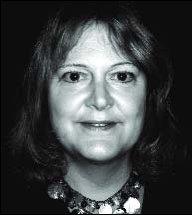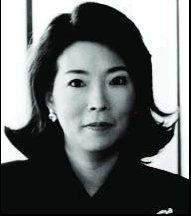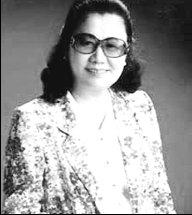Women in the Workplace
Profiles of professionals
By Willhemina Wahlin
In Japan, the ‘concrete ceiling’ as it’s commonly known, is still a major stumbling block in the career trajectories of many women. Still a predominantly male-dominated society, it’s not surprising that Japan, which rates seventh in the United Nations Human Development Index, only made it to 69th in the same report’s Gender-related Development Index, and 42nd in the Gender Empowerment Index for 2006.
Slow as it may be, change is on the way. Feeling the squeeze from all sides, including low birth rates and an ageing population, Japan’s severe underutilization of women in the workforce no longer makes any good economic sense. What’s more, many are realizing that the type of management that women can provide could well be the key to once more unlocking Japan’s economic might.
J@pan Inc spoke to four women who have enjoyed success in fields as diverse as government bureaucracy, business and non-profit organizations. They discuss their own experiences as professionals, and offer some interesting ideas on the future of women in the workplace in Japan.
 Hiroko Tatebe
Hiroko Tatebe
Hiroko Tatebe
Hiroko Tatebe may well have her ranking in her family to thank for her independence. “I wanted to try what it’s like being ‘Hiroko,’ rather than being the ‘6th daughter of the Tatabe family’,” she says. Her plans met a lot of resistance from her very traditional parents. That is, until her father passed away when she was 16.
“He was president of a small savings and loan company at the time he passed away,” explains Tatebe. “My mother actually became director, which was very unusual at that time, because she was already 52 years old—and that was 40 years ago!”
Inadvertently, Ms Tatebe benefited from her mother’s new career, as she began to understand why her daughter wanted to study abroad. After being accepted to Whittier College, she moved to California, the state she is still based in today. She went on to complete a diploma from the Graduate School of Banking at the Bank Administration Institute and University of Wisconsin, and became a Certified Financial Planner through the College of Financial Planning in Denver, Colorado.
Her professional career took off when she was hired by the Dai-Ichi Kangyo Bank of California (currently Mizuho Corporate Bank of California). It was here that she fatefully began to develop her skills as a bridge between the cultures and went on to become Director, Executive Vice President and Treasurer for the bank.
Six years ago, during the process of a bank merger, the culture began to change within the organization. Ms Tatebe saw another opportunity for growth. “I always felt when I get to 50 years old then I should do something new, and that was the time, so I decided to move forward with a new career.”
After some time searching, she came full circle, when she realized her skills as a bridge between US and Japanese cultures could also benefit women. “In terms of women and diversity initiatives, the US is more advanced, but at the same time, the US is still struggling, 40 years after the civil rights movement, there are still things the US needs to learn.”
Tatebe became a founding member of GEWEL (Global Enhancement of Women’s Executive Leadership) in Japan, and in 2003 they held an inaugural event in Los Angeles. “We brought 10 business women to LA and I organised workshops, which was very successful.”
In 2006, she expanded her idea by founding the US-based Global Organization for Leadership and Diversity (GOLD). While the eventual goal is to widen its focus to include both professional men and women, and expand its geographic service area, for now it is primarily focused on the development of professional women leaders and their networks.
“The GOLD goal for women in the States and in Japan is to create a community, learn models from each other, then really exchange the best practices to the extent that we don’t have to say ‘this is Japan’ or ‘this is the US.’ Of course, we cannot do everything the same because the cultures are different, but the underlying concept should be the same.”
Tatebe views the development of global leaders as vital to Japan’s future, but despite Japan’s many years in international business experience, there is still little consideration given to the benefits of diversity.
“Japan needs to understand what global means—how to be a global leader and how to utilize a global workforce—that doesn’t mean only from all different countries. In Japan, the older generation that are still working now have to deal with the younger generation. Especially in IT, the younger generation becomes your boss, and how do you deal with it? That’s diversity.”
“Here in the US, when we talk about diversity, we talk about race and ethnicity. Japan is more homogeneous, but at the same time, there are so many different types of diversity— gender diversity is the first thing, so how can we start?”
GOLD’s start has been promising. The 2007 symposium, held in March in Los Angeles, had a diverse array of speakers, including Tracey Doi, Group Vice President and CFO, Toyota Motor Sales USA Inc, and Yuko Kaifu, Former Consul, Consulate General of Japan in Los Angeles. In addition, GOLD also hosts 5-day study tours to the US for Japanese MBA students.
Tatebe warns against a policy that hires women for numbers alone. “Numbers are important—you have to start with something. But we need to remember if women without any talent are hired, that won’t do any good. First, let Japanese women become aware that it’s very important to have self-esteem.”
Training programs will be the key to bringing out the best in Japanese women, and organizations such as GOLD can put women in touch with one another, particularly beneficial for women who would like to enter a mentoring program. GOLD’s plan, in Tatebe’s words, is not just to do something because it’s good but also to develop financial goals, which in turn supports economic exchange, networking and training. “Then I know little by little we can make a difference.”
 Jane Best
Jane Best
Jane Best
Jane Best is of the opinion that it is an exciting time in Japan right now for nongovernmental organizations— and she would know. After 22 years of living in Japan, and a history in voluntary work that saw her awarded an MBE (Member of the Order of the British Empire) in 2001, she is now President and CEO of Refugees International Japan (RIJ).
Ms Best agrees that there are special challenges and opportunities for NPOs and NGOs in Japan today. “The challenge is in understanding what charity is about. Why should anybody be concerned about anything beyond the shore? However, if you talk to people and create discussion about the issues, they become more and more interested, particularly young people.”
On the other hand, she adds, NPOs have an opportunity here in Japan that they may not have in other parts of the world. “The advantage of being here is that Corporate Social Responsibility is definitely catching on, although it’s still in its infancy, so the market has not been saturated. You know if you go to New York or London, there’s lots of organizations that are looking for support and so on—a bit of overkill sometimes. In Japan it’s new and developing, so it’s quite an exciting time.”
RIJ is primarily an all-volunteer organization (Ms Best is the first paid employee) that “funds projects around the world that assist and empower displaced communities through the provision of shelter, food and education.”
Given Japan’s increasing role in global trade and development, RIJ looks set to take on a larger role in the future. As Ms Best puts it, “Japan has got to take an interest in international issues. From that point of view I think there’s a lot of opportunity, but we really have to market it, we really have to explain it, we have to be transparent.”
In Japan, Ms Best explains, the majority of employees in NPOs are women. “We can say it’s because women can be more compassionate, but also because they are prepared to venture out, they are prepared to be more adventurous.”
Although NPOs will never provide the kind of income that large corporations are capable of paying, they are hothouses of opportunity, offering better positions to women in terms of challenging and diverse roles.
Seizing the opportunity today to develop skills and become a highly trained and experienced professional is a good way to keep a step ahead of the competition. In this sense, NPOs can be major catalysts for change in Japan, but there is still a long way to go.
“I think the problem is that the NPO sector is very young, and of course lobbying and advocacy are not something that are well developed here, but they are working on it and I think it’s incredibly positive,” Best explains. “I would call them quite gutsy, the people who are prepared to do this, but there is opportunity, and people will listen. If you have your facts quite well planned out, they have to listen, because they haven’t got any answers.” For her, “setting a good example is the most important way of moving forward.”
 Kumi Sato
Kumi Sato
Kumi Sato
Kumi Sato has been a pioneer in her field of strategic communications. As President of the COSMO Public R e l a t i o n s Corporation, a position she has held for the last 20 years, she has presided over a company that has helped numerous foreign companies enter the notoriously difficult Japanese market.
In 2002, COSMO was named the “Consultancy of the Year” by PR Week Asia, while Ms Sato herself, since 1998, has been honored many times, including being named one of the “Stars of Asia—50 Leaders at the Forefront of Change” by BusinessWeek, and one of the “Hundred Global Leaders for Tomorrow” by the World Economic Forum at Davos. She has sat on numerous boards and committees in the US and Japan, including her more recent appointment as Vice President of the American Chamber of Commerce in Japan (ACCJ).
It is with perhaps a little irony that Ms Sato graduated from Wellesley College, the institution made famous in the movie, Mona Lisa Smile, which delves into the lives and choices of some of America’s brightest young women in the 1950s. Prior to joining COSMO in Japan, Ms Sato completed a two-year stint with McKinsey in New York, then founded and headed COSMO International, a consulting firm based in New York and Arlington, Virginia, which assisted small-to-medium sized Japanese companies enter the US market. Her work at COSMO nowadays goes one step further— helping foreign companies with PR in Japan.
Kumi Sato believes that today’s global business world needs to offer better opportunities for its staff to create balance in their lives.
“A firm needs to clearly state that a work-life balance is important and therefore make it a real priority, not something that looks good in theory,” she explains. “At COSMO we make it a priority with all members of our staff that a work–life balance is something for everyone.”
Married with three children, Ms Sato agrees that sharing household jobs within the family is important for everyone to reach their own potential. “My husband and I both worked fulltime running companies, so we split the workload and responsibilities. My husband was in charge of school work and sports activities, while I made sure their daily needs were met.” She adds that along with this arrangement, they relied on relatives for additional support.
Ms Sato believes that one of the most important steps for women, when considering a re-entry to the workforce after children, is to undertake some training. “There are many more business courses available online nowadays, including Business Breakthrough, an online MBA that can be completed at home. There seems to be an increasing number of foreign firms offering this type of training that can usually be completed within two years.”
Many of the changes that have been brought about for women in Japan, suggests Ms Sato, have actually come from foreign firms operating in Japan. “A recent survey indicated that a high percentage of female law graduates from Tokyo University opted to join companies like McKinsey and Goldman Sachs, as opposed to governmental agencies and local firms, which had been the case for many, many years.”
Ms Sato explains that in the past, it was frowned upon, or seen as a back-up option, for many graduates to work for foreign firms. This preconception has unwittingly provided a unique opportunity for women. “The signs are encouraging. Foreign companies are playing an important role in Japan’s economy and securing some of Japan’s best talent.”
She agrees, however, that setting some numerical targets could have benefits, particularly in government policy. “Setting goals is an important reminder for the government that they must come up with a policy that supports gender equality, and not just make it something that is popular with certain people” she explains. “There has been a recent attempt to encourage women to have more babies, but this has been more talk than action. We cannot afford to take a ‘wait and see’ approach; otherwise women will find it tough to re-enter the workforce.”
On the subject of her own professional experience, Ms Sato says that she has been fortunate to surround herself with good people, and has followed areas of interest that she is passionate about. “This is something we encourage at COSMO and one of the benefits of being independent; we can pick and choose who we want to work with. Most people I meet enjoy my story, but I remind them that it is something we can all achieve if we take action, and don’t take no for an answer.”
 Mitsu Kimata
Mitsu Kimata
Mitsu Kimata
As a young girl, Ms Kimata’s father used to tell her: “You should grow up to take care of other people’s problems, not to have other people take care of you.” Taking the advice to heart, Ms Kimata graduated from the Faculty of Medicine (Public Health) at Tokyo University before becoming one of Japan’s first elite bureaucrats for the Ministry of Labor.
“I was the first woman bureaucrat to be assigned to the Vocational Training Bureau. For good or bad, the time had come for Japan to be categorized as a developed nation and was, therefore, required to do something good for developing countries in Asia, to begin with, then Africa and South and Middle America,” she explains.
This turned out to be a blessing for Ms Kimata. As the Ministry of Labor was set up as an essentially domestic Ministry, few bureaucrats of any longstanding rank had any idea how to go about running such a program. “I was asked to take up the challenge of this quite new position at the Ministry,” Ms Kimata recalls. “This is the original start of the Official Development Program by the Japanese Government.”
She believes that taking this position could well have been the catalyst for her successful career. “Nobody could order, make suggestions or give advice to me,” she explains. By the time she left the position in the mid-1980s, she had overseen a vocational training program involving 130 countries.
Then, in the mid-1980s she was offered the post of Minister of the Japanese Mission to the United Nations in New York; a role she was hugely successful in, thanks largely to what she calls ‘hand-made diplomacy.’ During the time that she held the post, Japan’s presence grew, winning all of the 11 elections for committee seats Japan ran for.
Ms Kimata returned to the Ministry after her stint in New York, and after some time was offered the position of Vice Minister. After some consideration, she turned down the position and also declined offers from various political parties to run for the Japanese Diet. Instead, she accepted an offer to become the Founding President of the Body Shop in Japan, a position she held for 10 years.
Today, along with over 40 other voluntary activities she’s involved in, Ms Kimata is the Director and CEO of the NPO, Empowering Women Empowering Society (JKSK). She explains that part of the organization’s work is interviewing top executives in Japan’s business sector on the topics of ‘Empowering women, Empowering Organzation’ ‘Diversity Promotion’ and ‘Work & Life Balance Development.’ “One of the top executives said in his interview that Japanese society is very rare in the world, in that 90% of men still want to stay in a world in which men are dominant over women—in other words, a male-protected society.”
She adds that in fact, there is a higher percentage of women reaching top scores in entrance levels in companies, but are still be being passed over for less talented men. “When I raise the question, ‘why do you not employ the talented applicants?’ their reply is that if women applicants are employed following the real results, men’s positions are lost. My answer to their reply is, ‘what’s wrong with that?’ Men should find a more suitable life, even in the family position. If this attitude does not change, Japanese companies will be defeated in a competitive world.”
Ms Kimata recognizes that in Japan there is an urgent need to address the under-utilization of women in the Japanese workforce. “As long as we keep this male-managed society, women’s real talents are not utilized at all. It is not a gender issue, but an issue that affects the essence of Japanese society. To compete in this situation, we, women, had better act positively, as we like, as we think.”
JSKS also recognizes the fact that a large number of men are unsatisfied with their current situation in many workplaces as well. In Tokyo this October, the organization will host a symposium that will focus on the promotion of work-life balance for men. Speaking at the event will be many men who have created a balance within their own families. An event such as this is just as important to affect change for women in Japan. Adds Ms Kimata, “I am saying to women in Japan, let’s be responsible, at least for your own life, economically and have a matured and happy life through your own responsibility.”
Leaving plumes of concrete dust in their wake
For women in Japan, having to perform tea service while they plan their rise to the top is still part and parcel of their journey to success. While government initiatives are getting underway, they are still being adopted far too slowly in most corporations. As a result, Japan is losing some of its brightest minds to foreign competitors. While the government cries baby bust, both men and women are becoming increasingly dissatisfied with the positions allocated to them. Having positive role models is one of the most important places to start—for both men and women. For these four professionals, no concrete ceiling has proved impermeable.





